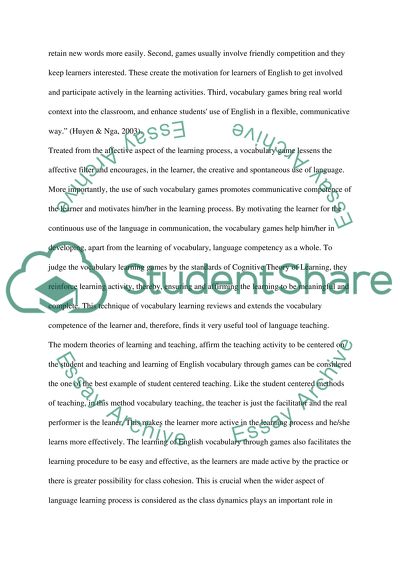Cite this document
(“Teaching and Learning English Essay Example | Topics and Well Written Essays - 2250 words”, n.d.)
Retrieved from https://studentshare.org/english/1512801-teaching-and-learning-english
Retrieved from https://studentshare.org/english/1512801-teaching-and-learning-english
(Teaching and Learning English Essay Example | Topics and Well Written Essays - 2250 Words)
https://studentshare.org/english/1512801-teaching-and-learning-english.
https://studentshare.org/english/1512801-teaching-and-learning-english.
“Teaching and Learning English Essay Example | Topics and Well Written Essays - 2250 Words”, n.d. https://studentshare.org/english/1512801-teaching-and-learning-english.


